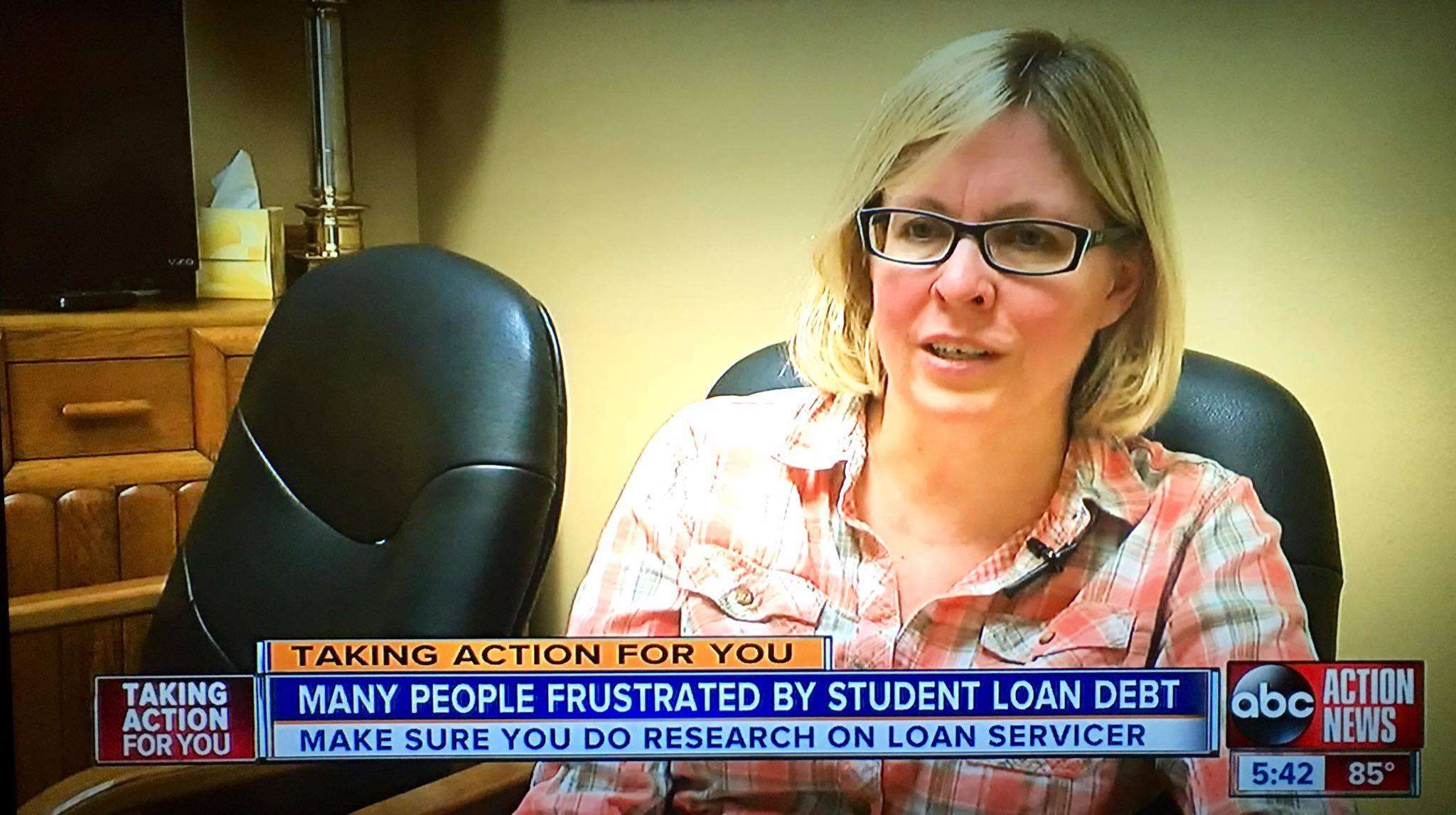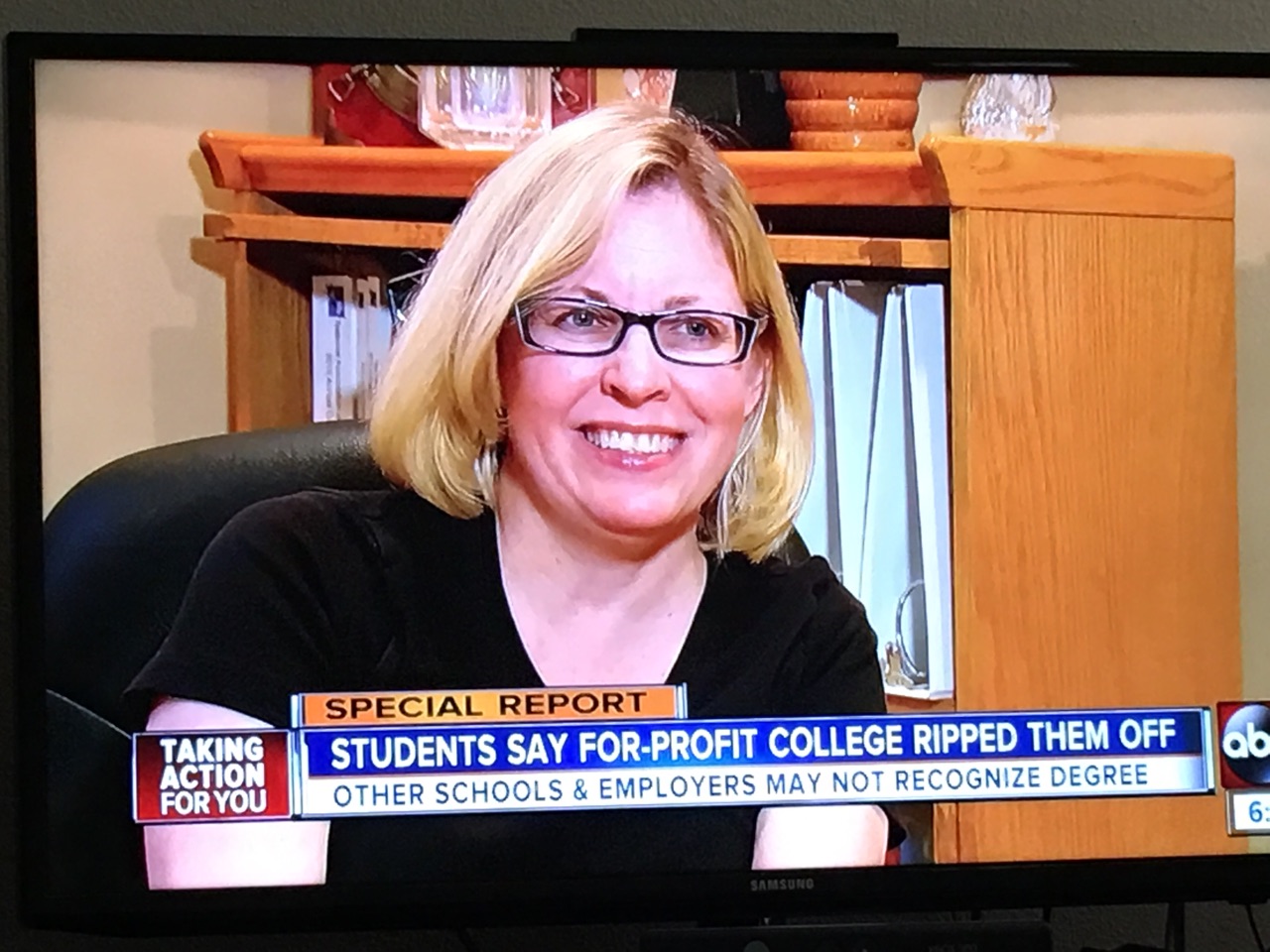Are You a Debt Slave? Check Out This Huffington Post Article on Private Student Loans.
Are you a slave to your private student loans? We have client after client coming to see us with huge private student loans that are not going away, despite years of throwing money at them. In fact, in most cases, the balances are larger, sometimes double what they used to be. Let us help you get these loan balances and monthly payments to something sustainable, affordable and with an end in sight.
While as an attorney it is difficult to tell your clients that perhaps their best option is not to pay, I just ran across this article titled “Top Ten Reasons You Should Stop Paying Your Private Student Loan” from the Huffington Post which agrees with taking such a strategic default. I have to say I agree with every one of their top ten reasons. Please take a moment and review the article. And we have taken this view for a while now, taking action on behalf of our clients to bring these unaffordable private student loans under control.
As HP points out, yes it will hurt your credit and that of any co-borrower. Private student loans won’t negotiate with you for the most part when you are current. They may start calling you demanding payment once you start missing payments. This is where the consumer laws come into play. Know your rights. Review our website for actions you can take now to preserve your claims. We file lawsuit for FDCPA, FCCPA and TCPA violations all the time. This can lead to substantial reduction in the amount owed on your private student loans.
Can I Buy, Sell or Trade in My Car Before Filing Bankruptcy?
This can be a sticky wicket. I’ve never actually used that word in a sentence. 🙂 Normally you can buy a car before filing bankruptcy. In fact, in some cases it can be a good idea (note: as a bankruptcy attorney I am not supposed to tell our clients to buy cars before filing). But you should know that if you do pull the trigger to buy a car before filing you often can get a better interest rate or other financing terms than if you are actually in a bankruptcy. You still have to pay to keep it of course. But you’ll have a better idea of what your budget will be when you actually file for bankruptcy. It’s a bad idea to have too high of a monthly payment also, so keep it within a sustainable amount. Getting a replacement vehicle before you file can also be a good idea because then any future repairs will be covered by a warranty. Once you are in bankruptcy, you likely won’t have extra money sitting around to fix a broken transmission, and would have to file motions to replace the car or obtain a short term stay of your plan payments if a Chapter 13.

What about selling your car before filing? Also a sticky wicket. That’s twice now, I’m on a roll. If you are selling for fair market value to a third party, all is good. If you are giving your friend or family member the deal of a century that is an incredibly bad idea however. The trustee can go get the car back and sell it at its real value for the benefit of your creditors. It is best to keep a record of the transaction and deposit the funds in your bank account so the bankruptcy Trustee can see that the money actually was paid and where the money went.
So, what about trading in a vehicle? Well, that also is not as black and white as you might think. I’m done with the wicket thing. If you are trading in a vehicle with a good amount of equity (maybe even free and clear) and you soon afterwards file a Chapter 7, the Trustee might not be too happy about it. You see, to them, you’ve now liened up an asset that may have been over your exemptions. They would have wanted to sell that free and clear vehicle to bring money into the bankruptcy estate. Particularly if you don’t have any exemptions left to cover the equity in the vehicle. But if the vehicle had a large lien on it and you’ve merely switched to another vehicle they likely won’t care. If you are in a Chapter 13, it likely won’t make a bit of difference. But be careful if you are filing Chapter 7 and make sure to obtain the advice of a good bankruptcy attorney before trading in your vehicle if it has equity.
Are You Being Sued By A Debt Buyer? (credit cards, car loans and private student loans)
Can I Keep My Car in Bankruptcy?
 One of the common questions we get is whether or not someone filing bankruptcy can keep their car. The answer is Yes, but you do have to pay to keep it. How you do that depends upon how much equity is in the car, whether you own or lease, whether it is jointly owned, and whether you are current on the payments. The information below applies to Florida exemptions, the laws may be different in other states and you may still be governed by another state’s exemptions if you’ve recently moved to Florida.
One of the common questions we get is whether or not someone filing bankruptcy can keep their car. The answer is Yes, but you do have to pay to keep it. How you do that depends upon how much equity is in the car, whether you own or lease, whether it is jointly owned, and whether you are current on the payments. The information below applies to Florida exemptions, the laws may be different in other states and you may still be governed by another state’s exemptions if you’ve recently moved to Florida.
Chapter 13: A Chapter 13 can be used to catch up on missed payments. It also can be used to value an underwater vehicle that you have owned for more then 910 days to what it is worth now. I’m sure you know this, but just in case, the phrase “underwater” means you owe more than it is worth. If you are current on payments, and the vehicle is worth more or equal to what you owe you would just “pay direct” and simply inform the court that you are continuing to make monthly payments. There is no need to reaffirm the vehicle, as the original credit agreement continues to exist throughout the bankruptcy.
Chapter 7: You can also keep a vehicle in a Chapter 7. In Florida, you are able to keep certain exempt property which includes $1,000 personal property, $1,000 vehicle equity, and a special exemption of $4,000 if you rent, or you do not own a home that you are keeping or otherwise receiving the benefit of a homestead. So if you are able to claim all three exemptions, for a single debtor, that would mean you can keep $6,000 worth of vehicle or belongings. Anything more than $6,000 you can make arrangements with the bankruptcy trustee to pay to keep. So for example, if your vehicle is worth $10,000, but you still owe $8,000, that means you have $2,000 in equity. If you also had $1,500 in personal belongings and $1,000 in the bank, you would have a total of $4,500 which would fall with the allotted $6,000 exemption. You could keep the vehicle and just continue to make the payments. In order to do so, the creditor will require you to sign a reaffirmation agreement which is essentially a new agreement to pay for the vehicle. The terms are generally the same although in some cases the amount owed or interest rate can be negotiated down.
Student Loan Nightmare – Looking for Answers in Bankruptcy Court in Tampa, Florida
ABC Action News ran a story about a Tampa student loan borrower tonight for whom we just filed an adversary lawsuit in bankruptcy court seeking an undue hardship. Unfortunately he was duped into what is now $164,000 worth of student loans for a worthless degree from IADT. Worst decision of his life. In our interviews we got the news journalist to understand and communicate what a fraud the accreditation process is. The differences between national and regional accreditation was a main focus of the story. We’ve been trying to get the word out on this for awhile now. Accreditation is not all equal. Our client’s degree is in IT – not basket weaving. But since it is from a nationally accredited school, this IT degree is essentially the same as a degree in basket weaving. Most employers and educators do not recognize it as a valid degree. If he wants to advance in his career he has to “do it all over again”. This means late nights studying, time out of the workforce, more student loans…
If you’d like to know more about why your nationally accredited school may not be what you think it is, see our earlier blog post Student Loan Nightmares at For-Profit Schools: Have accreditation agencies dropped the ball? For more info, please contact Arkovich Law
ABC Action News Interviews a client and me about getting full forgiveness of her loans!
 Highlighting a case where we obtained full student loan forgiveness of nearly $70,000 for an elderly client who had helped her son through school, ABC Action News interviewed our client and me today. The debt collectors wanted $700 a month in payments and were harassing her to make her payments. Now her payment is ZERO! The important thing to draw from this is to do your research. There are options for 9 out of 10 people who step into my office and don’t give up!
Highlighting a case where we obtained full student loan forgiveness of nearly $70,000 for an elderly client who had helped her son through school, ABC Action News interviewed our client and me today. The debt collectors wanted $700 a month in payments and were harassing her to make her payments. Now her payment is ZERO! The important thing to draw from this is to do your research. There are options for 9 out of 10 people who step into my office and don’t give up!
Why Hiring a Student Loan Attorney is a Good Idea
 In my continued efforts to help student loan borrowers understand why hiring a student loan attorney is a good idea, I’d like to post some of the cases we are working on this week. Some of these are a little out of the ordinary and I’m hoping that other potential clients who have similar difficulties will contact us to help after they read this.
In my continued efforts to help student loan borrowers understand why hiring a student loan attorney is a good idea, I’d like to post some of the cases we are working on this week. Some of these are a little out of the ordinary and I’m hoping that other potential clients who have similar difficulties will contact us to help after they read this.
- We settled a case for a client who came to us with a private student loan default a couple months back. He had accidentally defaulted when he tried to put two student loans into forbearance. He was told to send a certain sum of money, and sign and return two forbearance agreements. He did that. Despite both agreements being placed in the same envelope, the unnamed bank claimed it had received only one. And they argued that two payments were due, not just one. So they put the default on his credit. Unfortunately, this default would prevent him from applying and obtaining a federal attorney position with a security clearance. He offered to pay them in full. No can do. The default would remain. He hired us. We tried to talk to the bank but we also hit a brick wall. So we sued. Within two weeks of hearing from the attorney representing the bank, we agreed to a removal of the default and a 50% settlement in exchange for a waiver of our claims. We sued under theories of negligence, negligent misrepresentation and the FCCPA. Our client is up for consideration for a federal job now, and we’ve asked that the default removal request be expedited so that it won’t come up in the background search. While we will never know for certain, the litigation we filed allowed the bank to “act outside of the box” and get this rectified.
- Another client came to us after being garnished on her federal loans for 8-9 years at $500 a month. I could hardly believe this had gone on for so long, but she didn’t think anything could be done since it was a student loan. She’s not alone, many people think that, including attorneys who don’t do student loan work. She is a teacher making $30k or so a month. She owes 82k and her loan balance despite the $500 wage garnishment is not going down and she feared having to pay it forever. With two kids of her own about to go to college, she couldn’t afford for this to continue. Our plan is to rehab the default to cure it, then consolidate the loans to re-characterize her FFEL loans so they are eligible for public service and then apply for a certain income based plan with debt forgiveness that would forgive the balance after 10 years under the public service program without considering her husband’s considerable income. When the dust settles we estimate her payment will be $300 for 10 years. She is good with that. The amount is based on her income (not her husband’s which is over 100k), is affordable and the best thing is it’s over in 10 years with no tax forgiveness.
Getting a Debt Buyer Lawsuit Dismissed

How many consumers are sued every day by a debt buyer they’ve never heard from in the past? This is extremely common and presents an excellent defense for those knowledgeable enough to use it.
One of the best tools we have as a consumer lawyer fighting collection actions brought by companies such as Cach, Asset Acceptance, Sherman Financial Group etc. is Florida Statute Section 559.715. It requires notification of any assignment of the right to bill and collect the debt be given to the consumer prior to filing a lawsuit in an attempt to collect the debt. It acts as a condition precedent to filing suit and requires a case to be dismissed if properly asserted.
A case we had last week is a perfect example. Our client was sued by Cach LLC for an old credit card debt and she represented herself for two years. Not much was done other than an answer was filed. However, the debt buyer recently started working on the file again and a motion for summary judgment was filed. Our client hired us in February of this year to fight that MFSJ. Once we reviewed the file, we determined that we could file our own Motion for Summary Judgment for failure of the debt buyer to send the notice required by Florida Statute Section 559.715. We did and we won. Case dismissed. The Plaintiff’s Motion for Summary Judgment hearing already set a couple weeks later was removed from the calendar as the case was now over. The statute of limitations was still open for the debt buyer to re-file for a few more months. So we next offered to waive our entitlement to attorney’s fees in exchange for the debt buyer releasing their claims against my client. They agreed. Problem solved. No low hanging fruit here Cach decided and they moved on.
Common Mortgage Problems Following a Chapter 7 with No Reaffirmation of the Mortgage

Consumer debtors routinely have various related difficulties with mortgages following the filing of a Chapter 7 bankruptcy. Unfortunately, the first thought is that the bankruptcy attorney messed up when that really is not the case. They think the attorney put the home into the bankruptcy when it was meant to be left out. However, all debt and assets must be listed and included for disclosure purpose in a bankruptcy. Debtors who want to keep their home, have a choice to reaffirm the debt by signing a Reaffirmation Agreement or by simply continuing to make monthly payments. In most cases, it is advantageous for a debtor not to reaffirm a mortgage debt, but rather just continue to maintain payments, particularly when the home is under water and no equity exists in the property. If they reaffirmed the debt and eventually had to give up the house because they moved to take another job for instance, they would be back on the hook for the mortgage debt.
So what kind of problems come up when a debtor does not formally reaffirm the debt in bankruptcy, but their intention is to keep the property and continue making payments:
- Whether or not a reaffirmation of a mortgage is required
 Reboot Your Life: Tampa Student Loan and Bankruptcy Attorney Blog
Reboot Your Life: Tampa Student Loan and Bankruptcy Attorney Blog






